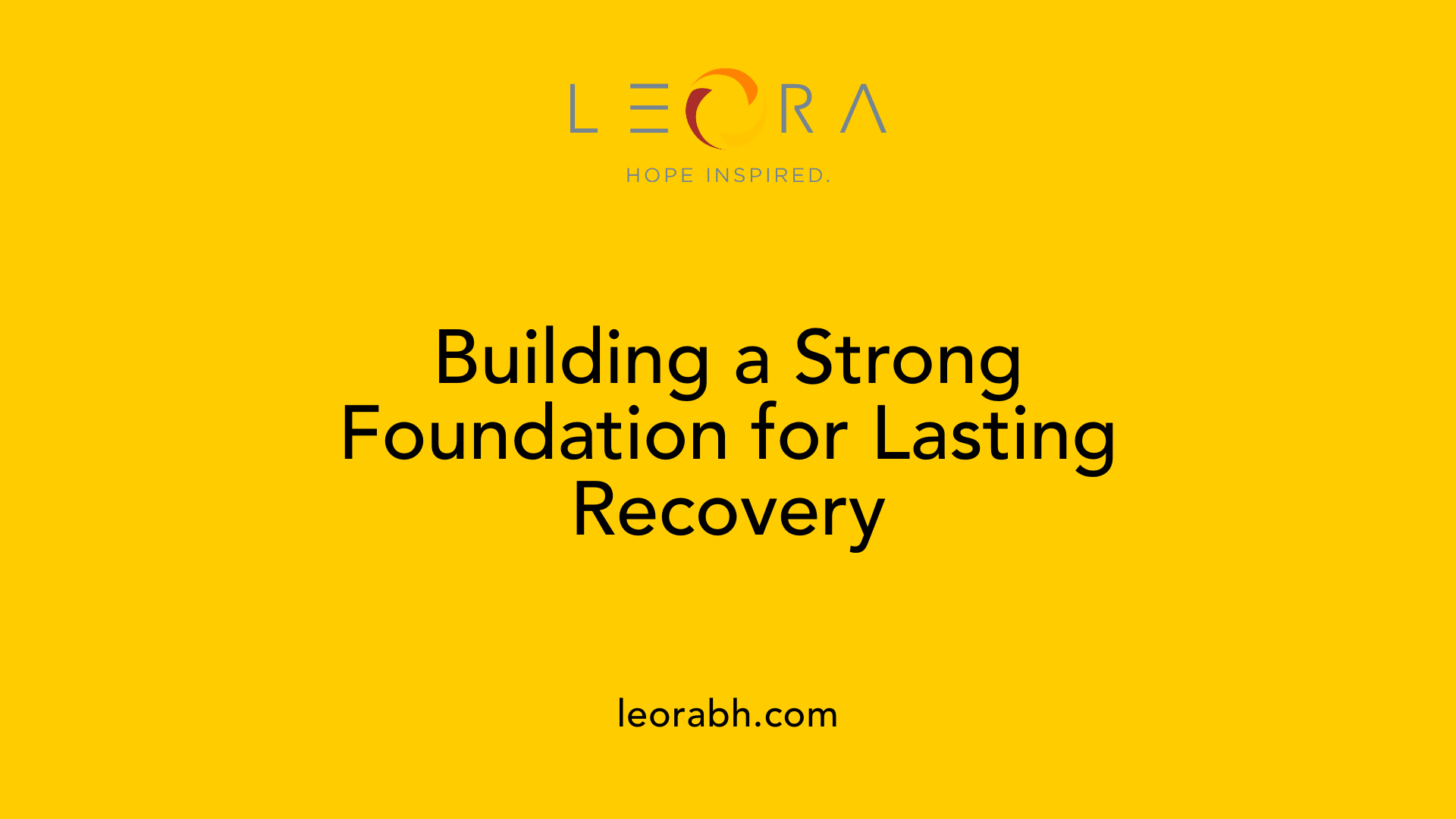Why outpatient care is ideal for rebuilding your life step-by-step
Empowering Your Recovery Journey with Outpatient Care
A Structured, Supportive Path to Rebuilding Life
Recovery is a continuous journey, often requiring structured support that fits seamlessly into daily life. Outpatient care offers a flexible, personalized approach designed to help individuals regain stability, rebuild routines, and foster long-term health in a step-by-step manner. This article explores why outpatient programs are an ideal choice for those seeking to restart their lives following challenges such as addiction or mental health issues.
Understanding the Levels of Care in Treatment

What are the different levels of care in addiction treatment?
Addiction treatment services are structured along a continuum of care, guided by the American Society of Addiction Medicine (ASAM) standards. This five-level system categorizes the intensity and type of support required for recovery.
Level 0.5, known as Early Intervention, emphasizes prevention and education for individuals at risk of developing serious substance use issues. This level often involves minimal support aimed at harm reduction.
Level 1, or Outpatient Services, provides less than nine hours of therapy, education, and support weekly. It is typically suitable for individuals with less severe problems or those transitioning from more intensive care.
Level 2 comprises Partial Hospitalization Programs (PHP) and Intensive Outpatient Programs (IOP). PHP involves up to 6 hours of daily support several days a week, ideal for individuals needing significant treatment but not requiring full hospitalization. IOP usually features 2 to 4-hour sessions multiple times a week, offering a balance between intensive therapy and daily responsibilities.
Level 3 is residential or inpatient treatment, where individuals stay on-site with round-the-clock supervision. This level typically lasts from 30 to 90 days and is suited for severe cases involving complex mental health and addiction issues.
Level 3.7 focuses on withdrawal management and detoxification, providing medical supervision for safe detox in preparation for further treatment.
Finally, Level 4 is the most comprehensive, offering Medically Managed Intensive Inpatient services in hospital settings for cases with immediate medical or psychiatric crises.
This structured spectrum ensures that individuals receive tailored care that matches their current needs, with built-in pathways for escalation or stepping down to less intensive services as recovery progresses.
The Significance of Outpatient Care in Recovery

What are the benefits of outpatient treatment, including maintaining daily responsibilities?
Outpatient treatment provides a flexible and accessible way for individuals to focus on recovery while continuing their everyday lives. This approach includes therapy sessions, group counseling, and skill-building activities that are scheduled around work, school, or family commitments. Many programs, such as Intensive Outpatient Programs (IOP) and Partial Hospitalization Programs (PHP), are designed to fit into busy routines, offering several hours of treatment multiple days a week.
This setup allows clients to practice new coping strategies in real-world settings, fostering increased confidence and independence. It also encourages ongoing family and community involvement, which can be vital for sustained recovery. The ability to live at home reduces the disruptive nature of treatment and helps individuals gradually re-establish their routines in a familiar environment.
How cost-effective and accessible is outpatient care?
Compared to inpatient programs, outpatient treatment often costs less because it does not include overnight stays, housing, or meal expenses. Many insurance plans cover outpatient services, making them an economical option for those needing ongoing support without the financial burden of full inpatient care.
Advances in healthcare technology have expanded access to outpatient services via telehealth and virtual programs. Turning Point Recovery Network offers remote options like virtual IOP, increasing accessibility for people who cannot attend in-person sessions due to geographic or personal limitations.
This ease of access reduces wait times and allows for quicker initiation of treatment. Additionally, outpatient care's affordability makes it a widespread choice, especially for individuals seeking long-term recovery support while managing financial constraints.
What role does outpatient care play in mental health and addiction recovery?
Outpatient programs are integral in treating both mental health issues and substance use disorders. They employ evidence-based therapies such as cognitive-behavioral therapy (CBT), dialectical behavior therapy (DBT), and holistic approaches like yoga, meditation, and expressive arts.
These programs support individuals in achieving and maintaining abstinence, developing healthy routines, and building strong support networks. Family involvement through therapy and education enhances recovery by strengthening home environments and improving communication.
Outpatient care also facilitates a step-by-step recovery process—initially providing intensive support with PHP or IOP, then transitioning to less frequent sessions as stability improves. This model promotes long-term success by fostering ongoing accountability, relapse prevention strategies, and community engagement.
| Program Type | Weekly Hours | Suitable For | Description |
|---|---|---|---|
| Partial Hospitalization (PHP) | 20+ hours | Severe cases needing structure | Full-day treatment without overnight stay |
| Intensive Outpatient Program (IOP) | 9-20 hours | Moderate needs, transitioning | Multiple weekly focused sessions |
| Standard Outpatient (OP) | Fewer than 9 hours | Mild issues, maintenance | Weekly or bi-weekly support |
In summary, outpatient care offers an effective, adaptable path for mental health and addiction recovery, providing continuous support while respecting individual lifestyles and responsibilities.
Effectiveness and Benefits of Outpatient Programs

What are the types of outpatient programs, such as PHP, IOP, and standard outpatient?
Outpatient treatment offers various levels of intensity tailored to individual needs. The main categories include Partial Hospitalization Programs (PHP), Intensive Outpatient Programs (IOP), and standard outpatient care.
PHP involves attending the treatment facility for up to six hours daily, several days each week. It is suitable for individuals with acute needs but who do not require full inpatient care.
IOP requires engagement several days a week, with sessions lasting 2 to 4 hours each. This level is ideal for those needing more support while still living at home.
Standard outpatient programs usually involve weekly sessions of about an hour, designed for individuals with minimal clinical needs or those transitioning from more intensive treatments.
How do structured therapy modalities facilitate recovery?
Outpatient treatment employs a mix of therapies such as individual counseling, group therapy, family involvement, and holistic approaches like yoga, meditation, or art therapy. These modalities are evidence-based, designed to address mental health and addiction issues actively.
Individual therapy allows personalized attention to specific challenges, while group sessions foster peer support and shared experiences. Family involvement can strengthen support networks and improve outcomes. Holistic methods promote overall well-being, emotional regulation, and stress reduction.
Customized treatment plans, regularly reviewed and adjusted, help ensure that therapy remains aligned with the patient's evolving needs.
What evidence supports outpatient programs' effectiveness, relapse prevention, and long-term benefits?
Research indicates that outpatient programs, including IOP and PHP, are highly effective, especially for individuals with moderate issues and stable environments. They support relapse prevention by encouraging ongoing engagement with therapy and support groups.
Key benefits include flexibility to balance treatment with daily responsibilities, cost-effectiveness, and access to community support. Such programs foster skill development, behavioral change, and long-term sobriety.
Studies show that consistent participation in outpatient therapy increases chances of sustained recovery and reduces the likelihood of relapse. Integration of evidence-based treatments, such as cognitive-behavioral therapy (CBT) and dialectical behavior therapy (DBT), further enhances outcomes.
In summary, outpatient programs offer a practical, adaptable pathway to recovery, maintaining essential clinical support while allowing individuals to stay engaged with their home, work, and social environments. When paired with a strong motivation and support system, these programs are capable of delivering lasting change.
Supporting Long-term Recovery and Life Rebuilding
 Outpatient care is essential in maintaining long-term recovery for individuals transitioning from inpatient or residential treatment. It provides continuous therapeutic support while allowing individuals to live at home and manage daily responsibilities.
Outpatient care is essential in maintaining long-term recovery for individuals transitioning from inpatient or residential treatment. It provides continuous therapeutic support while allowing individuals to live at home and manage daily responsibilities.
A diverse range of services is available through outpatient programs, including individual counseling, group therapy, family involvement, and medication management. These services help clients develop practical skills for managing triggers, emotional issues, and behavioral changes. Relapse prevention strategies, such as recognizing warning signs and coping with stress, are central to outpatient treatment, empowering individuals to sustain their recovery over time.
Long-term engagement, often lasting six months or more, is vital for reinforcing progress and building emotional resilience. Recovery housing options and peer networks further support this process by offering safe environments that promote accountability, social connection, and mutual encouragement.
Transitioning from inpatient to outpatient care involves careful planning and coordination. Outpatient programs serve as a bridge, helping clients apply new skills in real-world settings and maintain their recovery journey. This ongoing support maximizes the effectiveness of initial treatment and fosters a life of stability and wellness.
| Aspect | Details | Additional Notes |
|---|---|---|
| Program Duration | Usually 6 months or longer | Longer programs help solidify recovery habits |
| Types of Support | Therapy, family, medication, peer groups | Holistic approach promotes overall wellness |
| Key Strategies | Relapse prevention, trigger management, resilience training | Tailored to individual needs |
| Community Involvement | Support groups, community activities | Enhances social support and accountability |
| Transition Role | Bridges inpatient care and independent living | Ensures sustained progress |
This comprehensive approach ensures that individuals receive continuous encouragement, develop essential life skills, and maintain the gains achieved during inpatient or residential treatment. The path to recovery is ongoing, with outpatient care providing the necessary tools and support networks for lifelong sobriety and improved quality of life.
Harnessing Outpatient Care for a Fresh Start
Choosing outpatient care as part of your recovery journey provides a flexible, comprehensive, and supportive environment that empowers you to rebuild your life step-by-step. It facilitates the gradual integration of new skills, supports relapse prevention, and reinforces long-term stability. By working with health professionals, leveraging community support, and involving family, outpatient programs become a foundation for sustainable recovery, helping you regain independence and pursue a fulfilling life.
References
- Outpatient Treatment With Built-In Flexibility
- Understanding Outpatient Therapy: A Flexible Path to Recovery
- Outpatient Rehab Services: 7 Powerful Benefits in 2025
- Reasons to Seek Outpatient Treatment - Oceans Healthcare
- Inpatient Vs. Outpatient Care: Which Is Right For Me?
- Chapter 3. Intensive Outpatient Treatment and the Continuum of Care
- How Intensive Outpatient Programs Fit Recovery Into Real Life
- Should You Go to Outpatient Rehab After Inpatient?
Find Your Inner Light
Related Articles
Schedule an Assessment
Leora Behavioral Health provides comprehensive treatment services, including ambulatory detox, mental health IOP, and SUD IOP, to support your journey toward lasting recovery.
Our caring team will guide you through the admissions process and create a personalized treatment plan tailored to your unique needs. We welcome walk-ins. If you or a loved one is struggling, reach out today. We’re here to help.


.svg)




.svg)
.svg)
.svg)
.svg)
